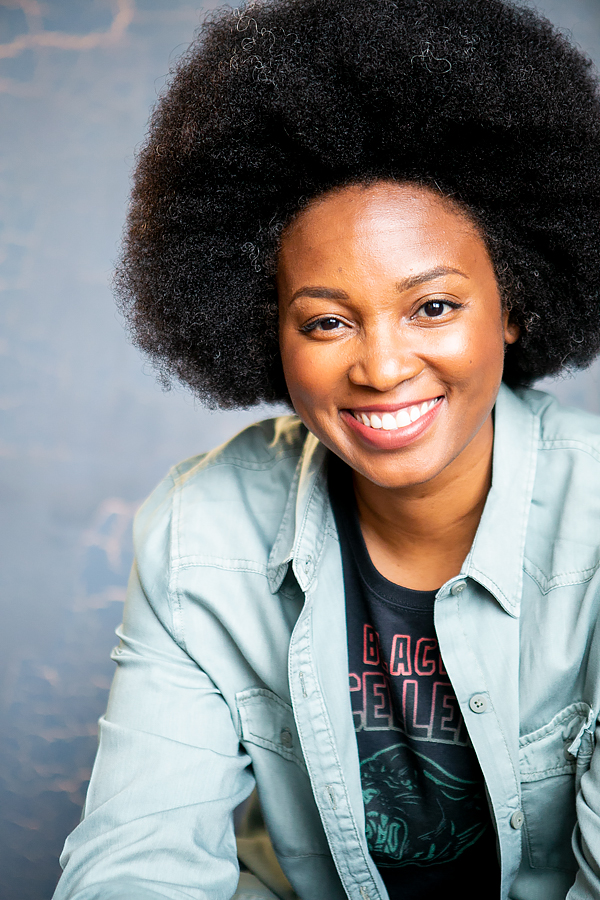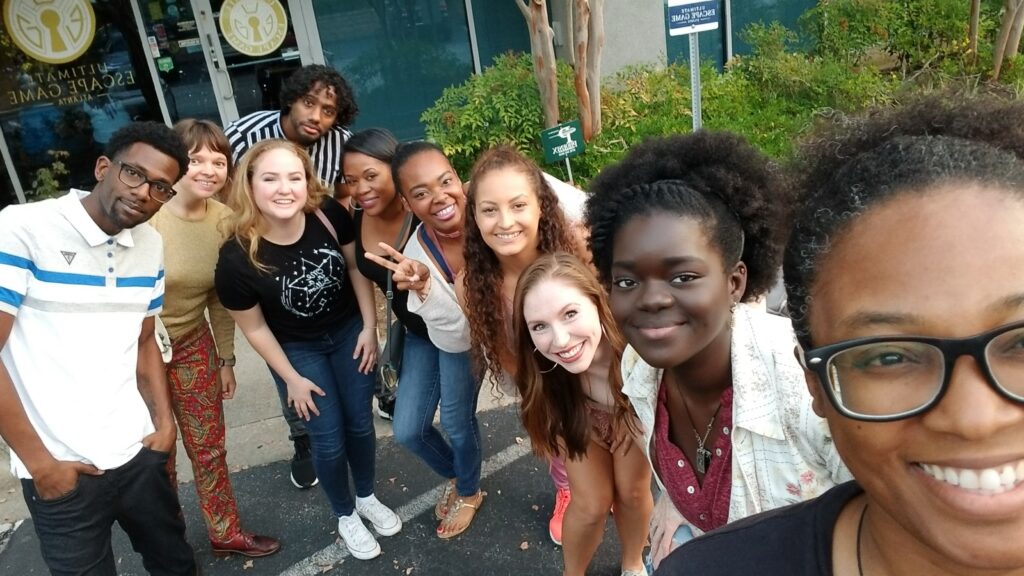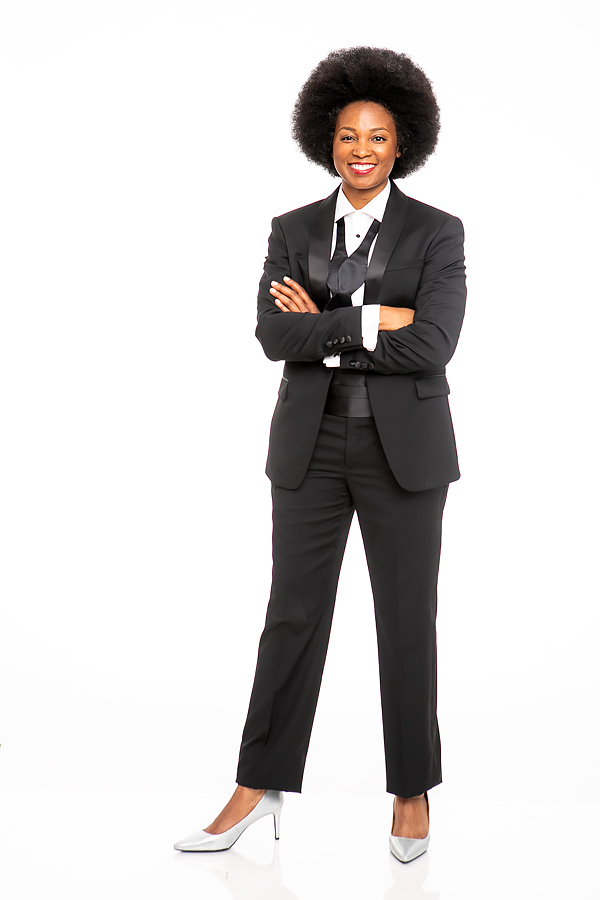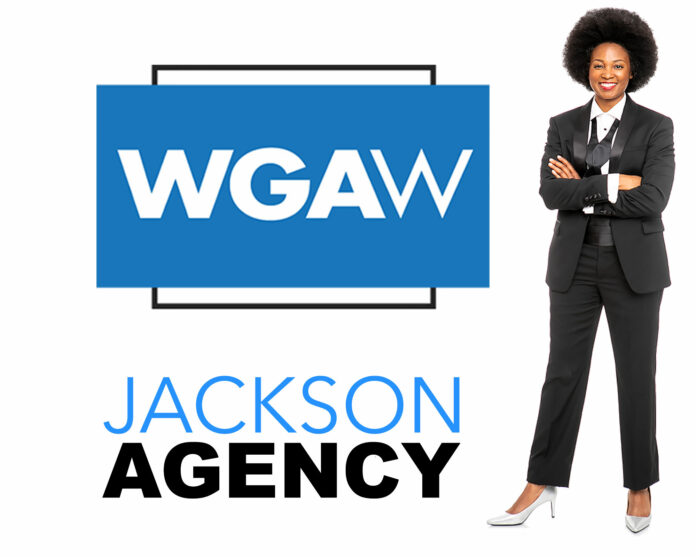( ENSPIRE Feature ) We Talk Diversity & Inclusion and Helping Other Actors/Writers With Tiauna Jackson
Since starting her agency, Tiauna has been a champion of diversity, created a community of actors who can be themselves unapologetically, and has grown her agency 3 times bigger in less than a year. With a positive impact on the acting community, Tiauna has created a resource for talented artists who simply don’t know how to get their careers started. She has educated hundreds of actors on which schools to go to, how to set up their resumes, and how to book business in Los Angeles.
In 5 years, Tiauna has built her talent agency from the ground up in the busiest and most competitive market, Los Angeles. With an office on Avenue of the Stars, Tiauna has catapulted The Jackson Agency to the top 100 in the world, opened a new office in Georgia while expanding her client list in New York and London, appeared in a New York Times article with highly respected Agents from CAA, ICM, and WME, amassed a personal client list of over 150 actors, brought in 3 agents under her banner, and secured a lucrative franchise with the Writers Guild of America. Committed to diversity, Ms. Jackson looks forward to applying her knowledge and success to bring writers of color to the entertainment industry.

How are you able to mentor/train young actors? What resources do you use?
When I first started the Agency I would do about 40-minute meetings privately with each potential client, thoroughly detailing everything I needed them to fix on their resumes, their casting site profiles, and the headshot types I needed them to get in order for me to have positive momentum with them. Over time, I started recording videos and posting to my Youtube channel for the agency so that the information was there 24/7 and because there were just so many deficiencies I grew tired of repeating myself.
I’ve always approached artists with the understanding that they aren’t being taught the business and marketing side of the business in their BFA and MFA studies because they are not. Their training is very theater heavy, focused on performance so when they come to me they essentially were lacking what we generally call “life skills.” I was encountering these insanely talented new actors with very poor marketing materials who were stuck, they couldn’t figure out how exactly to go about pursuing their dream. Which is why I created my ‘Getting Started’ series.
Honestly, there aren’t any resources, there are a lot of places selling the “Business of Acting, but they really aren’t teaching them exactly what to do, it’s very generalized. I once sent an actor to a Commercial school for training and the curriculum stated it would teach them how to create an acting resume and all they did was just throw a resume up on a projector for 1 minute and say this is what it looks like. So I realized that I would have to do the stuff in-house.
When it came to how I came up with my formula, I always just approached it from the mindset of these are the things I would look for as a producer and director of my own projects. The knowledge just came to me naturally as a creative executive.
What are the specific tools you give them to best succeed in Hollywood?
My branding and marketing strategy rests on four specific items that are a must-have for all actors: headshot, resume, training, reel.
The door opener for unknown actors is having a good headshot. After that, I’m looking at their resume. I’m looking to see if it is properly formatted, there is a generally accepted industry standard on how it should look and what is contained in it. With that, it tells me everything I need to know about the marketability of that actor to casting directors. Do they have network credits, or do they just have student films under their belt. Then I look at their training. Have they gone to reputable schools? For example, if an actor tells me they love doing comedy, I’m looking for extensive training in that arena. Actors have to understand their acting resume is no different than the traditional listing of skill sets one would find on a corporate resume. You cannot tell me you’re an Engineer with no schooling and no experience. Then I look at their demo reel, which is a collection of scenes showcasing their talent as an actor.
If any of these are weak, I tell them. And give them the exact places to go to fix their marketing and branding weaknesses. So instead of just telling them, they need improv on their resume. I tell them specifically to go to UCB, Groundlings, or Second City. That is more beneficial and cost-effective than just sending them back out into the world without guidance, traditionally actors end up with training from the wrong schools. Schools that no one has broken out from. Groundlings is very reputable and a lot of the actors who have gone on to be on Saturday Night Live have gone there.
My goal with guiding these artists is to provide a comprehensive education that my clients affectionately call “tough love” because actors really don’t understand just how competitive this industry is, how many cards are stacked against them and how they can be set up for failure and be ripped off at the same time.
Why is it important to you to equip future actors?
Coming up, I had no mentor in Entertainment. I still don’t. I didn’t have anyone who was willing to be that sounding board for me, I always did things by the book, meaning when it came to wanting to make a film I was told that I had to have a business plan in place, then go to the bank and seek funding. One day, I proudly walked into City National Bank with my business plan and approached a banker and said, “I have a business plan and I’d like to get funding.” The banker looked at me and asked, “What collateral do you have?” The books I read and the countless “film finance” courses I took left that part out. They made it seem like all you do is write out an exemplary proforma and bam show me the money.
At that moment it became obvious to me that I had wasted thousands of dollars trying to follow the rules. Turns out there aren’t any rules and that cash is king. So I said that if I were ever in a position to help those in need of help, I would.
I’ve met thousands of actors over the years, all with the same story. I can’t get an agent. So I decided that the only way to actually get it done is to do it yourself. The Jackson Agency was born.
It is important to me because sometimes in life you are called to do something good. I can’t sit here and criticize the lack of opportunities for people of color if I’m not even in the game. Your next household name could be out there, on their grind trying to get their foot in and no one would fight for them. That just didn’t sit well with me. I’m one of the first Black women with their own Agency in Hollywood, period. No one really understands just how competitive and oversaturated that market is, and how hard it has been for my agency as a unit to open doors.

Please discuss diversity and inclusion in the entertainment industry as it relates to what you are doing?
Diversity and Inclusion in entertainment to me is nothing more than public relations crisis management to appease the consumer market which is predominantly Black. D & I wasn’t even a thought until the Harvey Weinstein allegations came out, #oscarssowhite started trending, and Reese Whitherspoon started making a list of demands as a “diversity rider.”
What I am consistently seeing are scenarios where the “Hero” is always a white male aged 18-25, and the “Friend” is the lesser paid person of color. Consumers don’t really have awareness of this fact, they think because they see Chadwick, Tessa, Issa, and Lena on their tv screens that there has been a change. I can tell you right now that there has not been a change. My most recent lucrative bookings were by my Caucasian clients.
Notice every studio and network immediately placed an Executive Vice President of color in an office and made them Head of D & I? Well, what did the guilds do? Are you aware that most production crews are still all white? Are you aware that overwhelmingly Black Hollywood doesn’t have Black Agents, Black Managers, Black Publicists, or Black Attorneys handling their business affairs? Does that not bother you? It bothers me. One of my clients called me from the set of a major premium cable network one day frustrated because she was verbally attacked by the head of her department in a very disrespectful manner, despite her 20 years of experience. As we talked, she disclosed that she was the only Black woman on the crew of the show. A show, mind you, with Black leads.
I remember being on set as an extra when I was 20, and I was in awe when after 30 gigs I finally saw a Black Boom Operator and I said to myself, “Oh shit, they let us do this?” That was in 2002.
So when it comes to me and my platform now, I am making it my personal mission to diversify Hollywood. I just acquired a Writers Guild – West franchise in an effort to diversify the content creator market. As soon as I started letting my colleagues know that I was a WGA – West franchise it came back to me that I was literally the only Black woman they knew who OWNS her agency AND is franchised. It’s 2019, and it changed my whole perspective and plan of action with my literary department. I had originally opened my literary department in 2017 with a very viable project but we just couldn’t get any traction. Two years later, I’m still one of the few Black Agents in Los Angeles.
At first, I literally went through a few stages of grief. I was taken aback, I had the realization that I’m now playing a pivotal part in my community’s history,
then I felt sorrow because it’s 2019 and thought how did this happen? I’m not supposed to be pioneering anything in 2019, but it makes sense. We’re still just now getting the first Blacks and Afro-Latinos to win Emmys and Oscars in certain categories. When I looked at that way I really couldn’t be surprised and that now I had to do it ‘For the Culture.’
The same colleague who alerted me that I was the only person he knew with their own shop sent me this UCLA study: [http://newsroom.ucla.edu/releases/ucla-hollywood-diversity-report-bright-spots-women-minorities]
In this study, they observed Hollywood annually and quantified statistical data that found a brief uptick in female directors for about a year in D & I and then it quickly faded into oblivion, and then and found that despite an extremely calculated and public press effort, the amount of people of color in the content creation realm of the industry remains unchanged. In lamens, we still don’t have Black writers contributing scripts on shows. How? Well, we’re seeing shows like Fresh off the Boat, Blackish, and All Rise putting more faces of color into the homes of television viewers, but the Showrunners, Studio Executives, Writers, and Crew on these shows are still predominantly white. The #showusyourroom hashtag is all the receipts you need.
Over 500 shows on the air and maybe a dozen rooms participate in the social media project, where’s this mythical unicorn called Diversity and Inclusion? And if you look at that hashtag the ones that do participate tend to be shows with Showrunners/Creators who are non-white.
All the industry has done thus far is pacify the masses with a few more leading roles for non-white performers; but it hasn’t diversified its corporate workplaces. And even then, in an unshocking twist to me, a majority of the new Black faces you see on screen aren’t even Black Americans. They are Black Britons or Black Africans. We can’t even portray us in Biopics. Hollywood is deliberately preventing Black American economic wealth through these practices, but consumers aren’t even noticing because mainly these new “Black” faces have American accents.
So again, I can get on a soapbox all day long, give you facts and numbers, share my opinion without request, but if I don’t pick out my afro, unapologetically roll up my sleeves, and dig the trench line, then I’m just faking my call for Diversity and Inclusion like everyone else who is a Black A-lister with white teams behind them.. I can’t do that. I literally cannot and will not do that.
Our stories cannot be told properly if the only people telling them are white, and by that I mean the writers, producers, directors, cinematographers, gaffers, and development executives. We have to stop letting Hollywood exclusively profit off of our pain and our stories. Look at feature film, “ The Blindside,” there were so many things that were askew about the actual story of Michael Oher in that film. He’s now starting to share the real truth about his journey to the NFL and how that differs from Sandra Bullock teaching him how to play football.
Originally, I had affectionately referred to my Agency and my clients as the “Underdogs.” Now, we’re the “Champions.” We’re Championing Diversity at all costs. I don’t care if that makes me public enemy number one because someone has to sacrifice themselves for the cause in order for there to be a cause. When you pull up my roster of clients, you see the literal ethnic make-up of the world. It’s Diverse. It’s the young, it’s the old, it’s the newcomers. Why aren’t we seeing that in all aspects of entertainment, from Development, Pre-Production, Production, Post-Production, on through Distribution? Placing one executive of color inside of a studio or network isn’t diversity and inclusion. It’s public relations.
In summation, What is Diversity and Inclusion as it relates to me? It is me Championing Diversity no matter the cost. I’m holding them accountable to it in ALL aspects of entertainment. They wouldn’t even accept Tyler Perry’s aspirations so I’m not expecting them to accept my reasonable expectations for actual change just because I said so.








